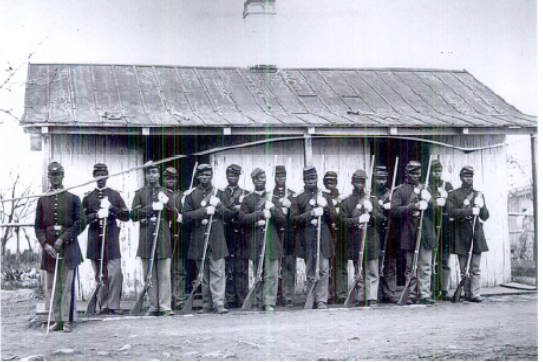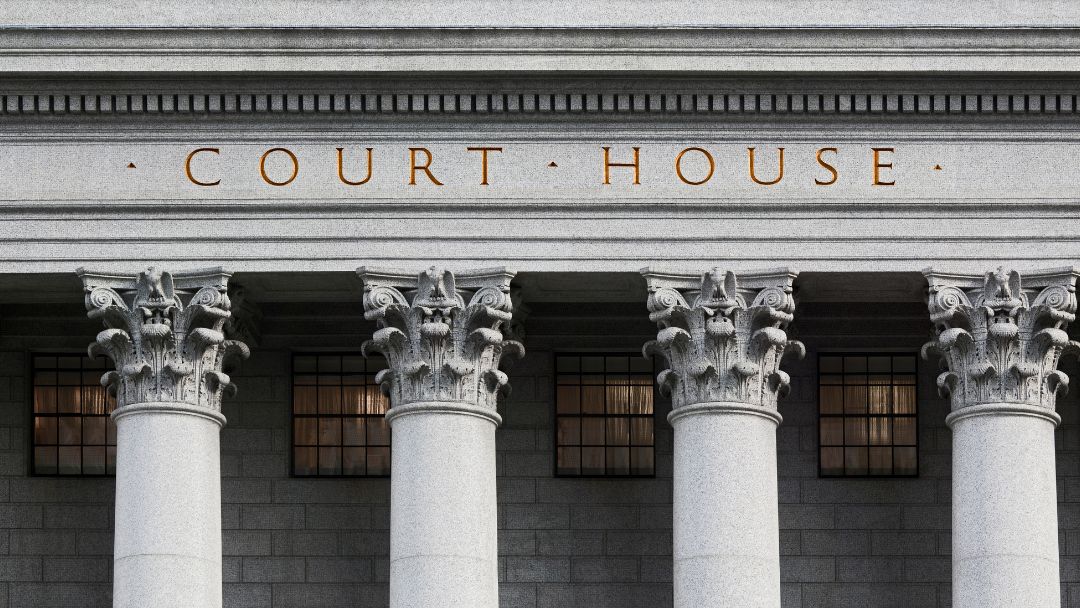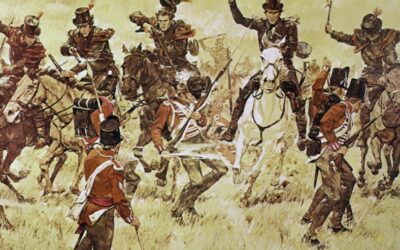A key mission of our society is to educate members about the principles of genealogy. This goal leads to many learning opportunities each month. We invite speakers from all parts of the genealogy world – some are internationally recognized experts, some are YouTube sensations, and others are simply knowledgeable about researching in Kentucky.
Here is the top 10 list of the most popular webinars from last year. Check the Learning Library for other programs of interest.
Genealogy Research in Tri-State Area
This webinar guides users through the impressive Browning Genealogy website. The website and database chronicles obituaries and local history from counties in Southern Indiana, Northwestern Kentucky, and Southeastern Illinois.
The Browning Genealogy staff continues adding new entries to the database daily, including obituaries from eleven counties in Indiana, as well as two counties in Illinois and 15 counties in Kentucky.
Disaster Proof Your Research
This webinar explained the importance of safeguarding your research, records, photos and even family heirlooms. Sara Cochran, a full-time professional genealogist with over twenty-five years of experience, provided tips and suggestions for saving yourself from yourself.
Using Direct and Negative Evidence to Prove Unrecorded Events
Information hidden below the surface or totally absent helps researchers reconstruct events, identities, and relationships that no record specifies. Such hidden information is indirect or negative evidence. The speaker, Thomas W. Jones, PhD, CG, is a genealogical author and educator.
In this webinar, he explained the qualities of both kinds of evidence, which are easily misunderstood. He described uses of indirect and negative evidence, and gave examples of applying those uses to solving genealogical problems.
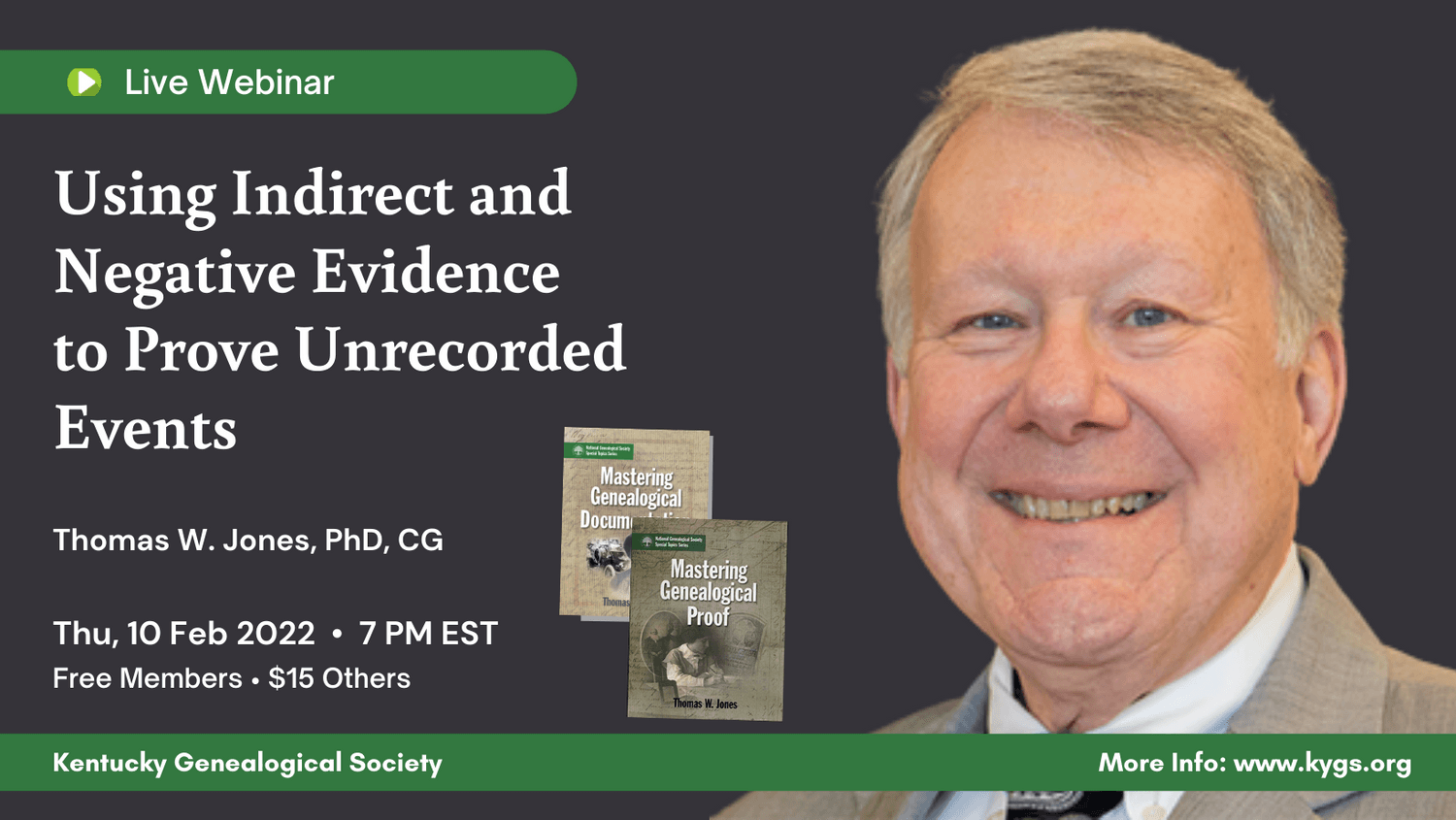
Exploring the Kentucky Court System
Our ancestors often used the judicial systems to resolve conflicts and make estate judgments. Finding court records for your family and neighbors can provide a wealth of information for your research.
Energetic speaker, J. Mark Lowe, FUGA, a full-time professional genealogist, explained Kentucky court records to help you find the right documents and answers.
Planning Your Genie Research
Genealogical proof requires the conduct of reasonably exhaustive research. We should not undertake the thorough research required by the Genealogical Proof Standard in a haphazard manner.
LaBrenda Garrett-Nelson, JD, LLM, CG, CGL, FASG, provided useful tips on developing an effective research plan, including the importance of crafting a focused research question and prioritizing potentially relevant sources.
Exploring Kentucky Cemeteries
Cemeteries can be extremely helpful for researching Kentucky ancestors. These sacred spaces can hold many clues to help you piece your family tree together, but like a Kentucky karst landscape, cemetery research in the Commonwealth is full of peaks and valleys. With over 43,000 unique cemeteries, Kentucky has more cemeteries than any other state or commonwealth.
In this presentation, society president Chris Padgett, summarized the wildly expansive Kentucky cemetery ecosystem. He answered a variety of questions about researching in a cemetery, caring for grave markers, and more.
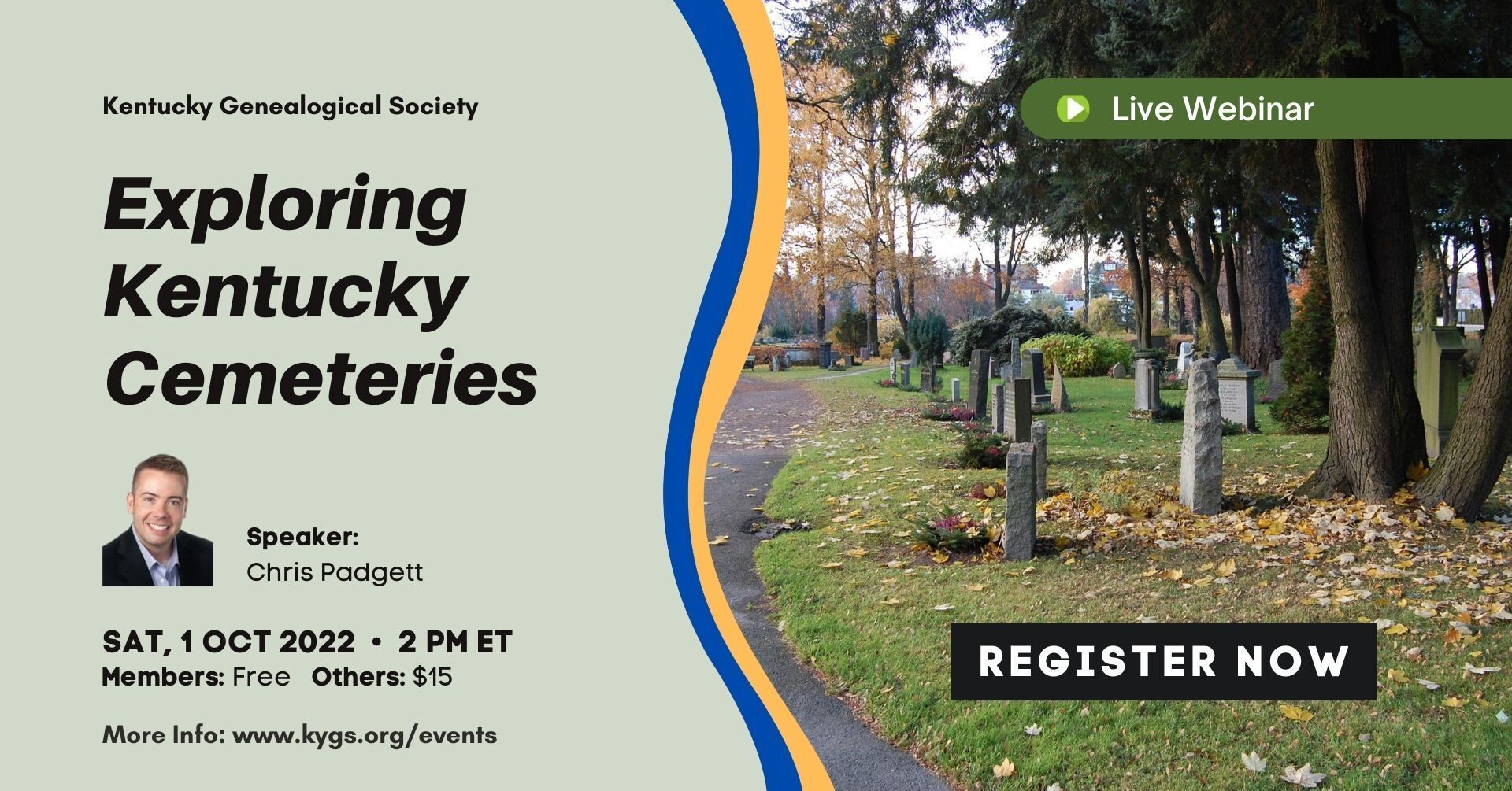
Getting a Good Start, Things I Wish I’d Known about Genealogical Research Before I Began
Fun and energetic speaker Cynthia Maharrey, professional genealogist, started with the three Rs of genealogical research. She followed with solid advice to anyone starting on their family research paths no matter if your family is in Kentucky or elsewhere. Lots of basics for new researchers.
Gathering Family Stories and Pictures
Sometimes we realize, once it is too late, we missed the opportunity to gather our family stories and pictures. Don’t let that happen in your family! This webinar discussed strategies for conducting successful oral history interviews, asking questions to spark meaningful conversations, as well as methods to preserve such interviews.
Aimee Cross is a professional genealogist based in California who focuses on United States research.
Using Timelines to Enhance Your Research Skills
Dr. Shelley Murphy, an avid genealogist for nearly thirty years, led this insightful session where she summarized the use and benefits of timelines for family history research. She provided tips and tricks for working through brick walls and how to prevent some of the common struggles with genealogical research, especially for people of color.
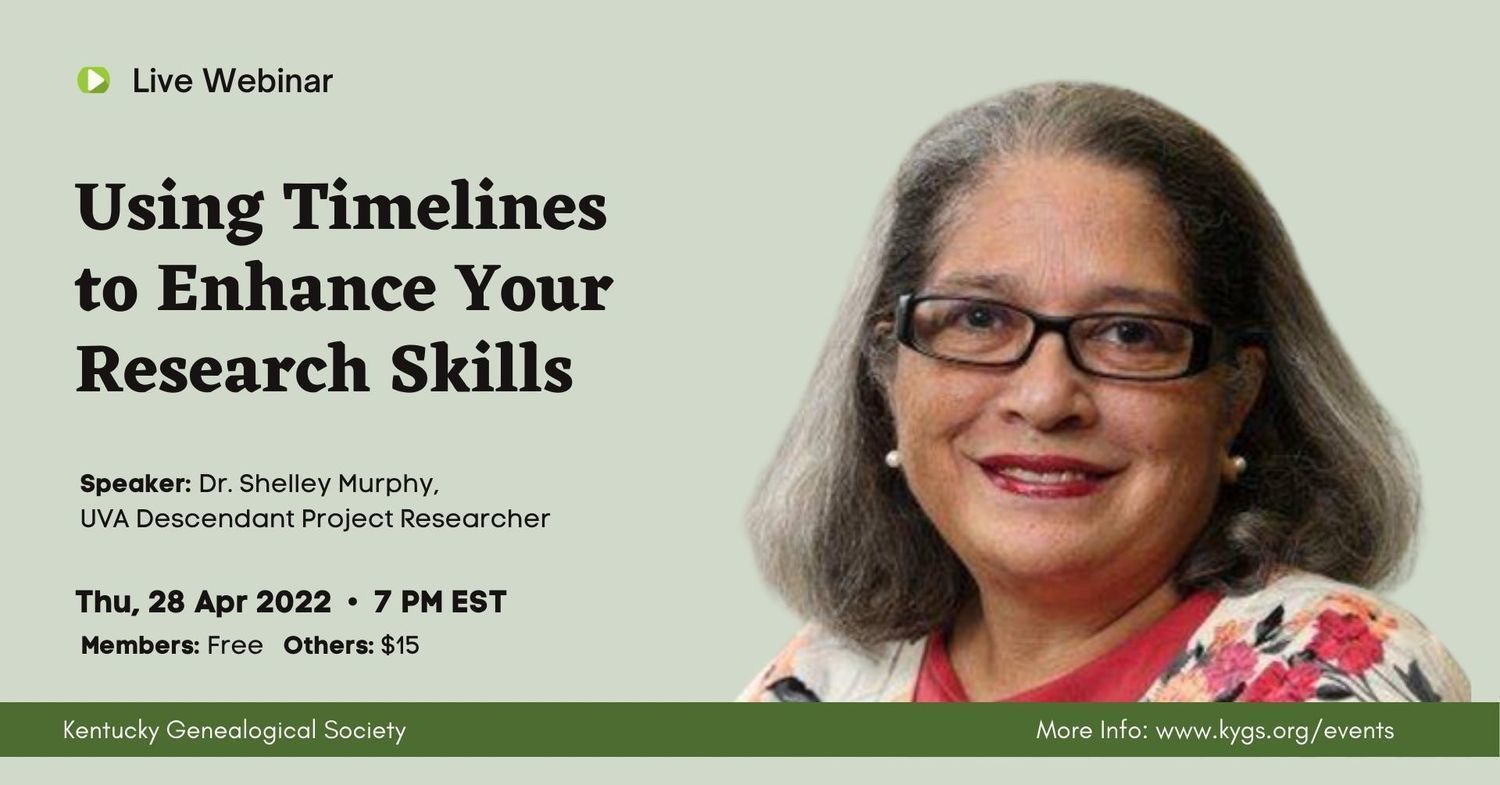
DNA Clustering: Automating Shared Matching
Alec Ferretti is a New York City based professional genealogist, who works for the Wells Fargo Family & Business History Center, researching family histories for high net worth clients. In this webinar, he explained DNA auto-clustering, by demonstrating how it is simply a more visual method of analyzing shared matches. Then he used case studies to show how auto-clustering was used to analyze shared matches.


